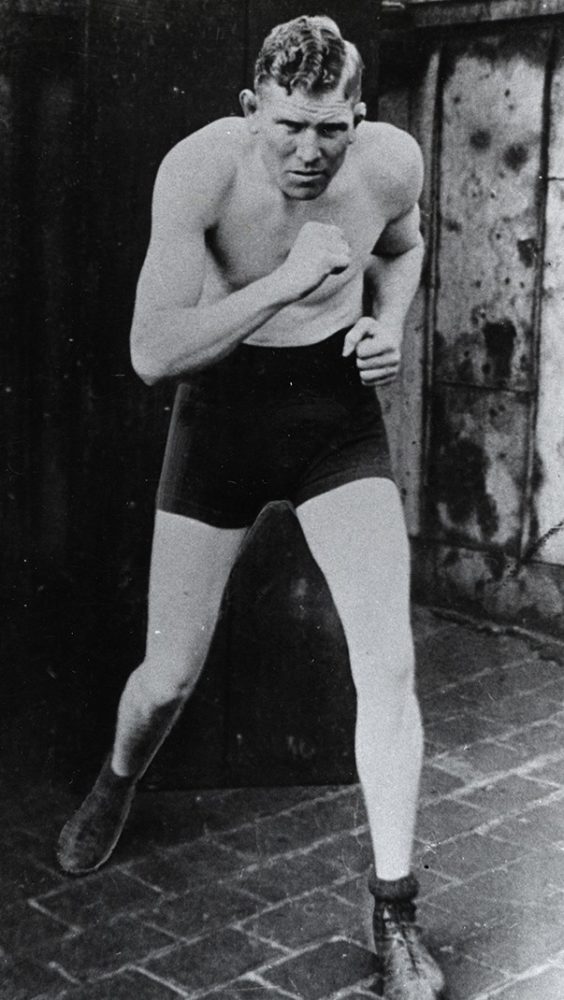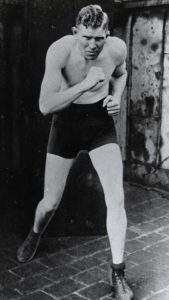Marty Burke
Louisiana professional boxer Marty Burke was Jack Dempsey' sparring partner.

Courtesy of The Historic New Orleans Collection
Marty Burke. Unidentified
New Orleans boxer Martin “Marty” Burke rose through the middleweight and heavyweight ranks to national attention in the 1920s. He lost two fights to future world champion Gene Tunney in 1921 and 1924, and spent years as sparring partner to celebrated boxing champion Jack Dempsey.
Burke was born on September 10, 1896, in New Orleans. His father, a New Orleans policeman who had boxed in his youth, encouraged him to take up the sport. Burke won the 90-pound Championship of the South in 1910, followed by the Bantamweight (115-pound) Championship of the South in 1913, and the Lightweight (130-pound) Championship of the South in 1915.
After winning the National Amateur Athletic Union (AAU) Middleweight (158-pound) title in 1918, Burke captured both the middleweight and heavyweight titles at the National AAU championships on April 9, 1919, in Boston, Massachusetts. He turned professional a month later, making his debut on May 28, 1919, against Bill Beverly at the Tulane Arena in New Orleans; Burke won by a knockout in the seventh round.
Burke won his first seven professional bouts and gradually fought his way through the middleweight and heavyweight divisions. On August 4, 1921, Burke faced an undefeated Gene Tunney in New York City, going the ten rounds but losing on points. Three years later he would lose his rematch with Tunney at the Coliseum Arena in New Orleans, losing on points in fifteen rounds. It was during this part of his career that Burke became Dempsey’s sparring partner, touring with the champion for several years. Following a loss against Babe Hunt on February 11, 1929, Burke retired from boxing, compiling a record of fifty-eight wins, thirty-eight losses, and eight draws for a .586 winning percentage.
By that time Burke was already involved in other boxing-related ventures. Backed by New Jersey millionaire Harry McCormick, Burke returned to New Orleans to become a fight promoter. His first event was a ten-round bout between Young Stribling and Ralph Smith on January 25, 1929.
After his boxing days ended, Burke owned and operated a bar in an area of the French Quarter considered so rough that New Orleans police would show up only in troop strength. As his fight promotion business became more successful, Burke sold his dive bar and upgraded to a restaurant and nightclub. During the 1940s he also opened a gymnasium for aspiring boxers at 229 Bourbon Street. During World War II, Burke called on his old friend Dempsey to appear at and promote a Victory Loan War Bond Rally at the Coliseum Arena. The event raised more than $2,500,000 for the US war effort.
In 1948 Burke relocated his family to southern California, where his son, actor Paul Burke, would gain notoriety through starring roles in television’s The Naked City (1958–1963) and Twelve O’Clock High (1964–1967).
Burke died on September 18, 1978, in Palm Springs, California, at the age of eighty-one.
